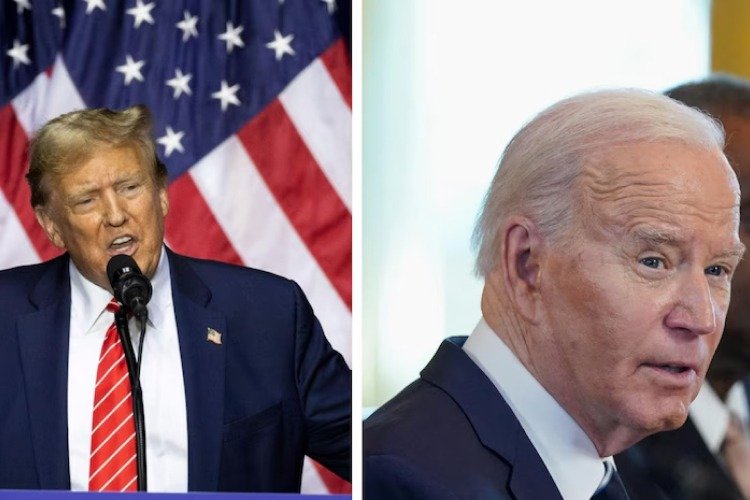US Presidential Candidates Have No Clue on How to Steer through the Rising Tide of Crypto Scams

The presidential election is scheduled to be held on November 5, 2024. Currently, the country is witnessing a Biden-Trump face-off that may lead to increased polarization and competing narratives in the coming days.
Despite this, there is at least one point of commonality between the two candidates: both Biden and Trump have failed to come up with a comprehensive crypto policy, particularly when it comes to fighting off crypto scams. Both candidates are overlooking the significant economic damage inflicted by these scams.
The Rising Tide of Crypto Scams and Frauds
No less than the FBI had the following to say about the rising tide of crypto scams in its Internet Crime Report 2023, “Fraudsters are increasingly using custodial accounts held at financial institutions for cryptocurrency exchanges or third-party payment processors, or having targeted individuals send funds directly to these platforms where funds are quickly dispersed.”
The co-founder and CEO of Lionsgate Network, a platform that secures finances with blockchain analysis and crypto recovery, Bezalel Eithan Raviv, compares the crypto scams — in their pervasiveness and scale — with the pandemic that was the core driving factor of the 2020 elections. However, this time, according to Eithan Raviv, ‘both candidates seem blissfully unaware of’ the fact that ‘there is a new pandemic in the form of crypto scams.’
Elaborating on the potential danger of not looking at crypto scams with much sincerity, Eithan Raviv comments, “The numbers don’t lie; $53 billion is drained out of the US economy by crypto scammers in America alone every year. Law enforcement agencies across the country are overwhelmed with cybercrime reports and crypto scams often go uninvestigated due to their complex nature.”
This complexity is what makes the current situation more potent in its need for a comprehensive policy. Yet, none of the presidential candidates have made any comment in that regard.
No Mention of Crypto in Presidential Campaign Websites
If we consider the official campaign commitments of both Trump and Biden to be the guidebooks on how they plan to run the country and its economy in the days to come, there is no mention of crypto in their vision for the next four years. The Biden official campaign website, for instance, highlights several issues it plans to tackle in the days to come, including protecting and strengthening the country’s democracy, growing the middle class, fighting to lower costs for working families, building a fairer tax system that works for the middle class, making health care more accessible and affordable, etc. However, none of that includes a word on how the authorities plan to protect the citizens and common investors from crypto scams.
The need for protection is glaring. According to the Better Business Bureau’s Scam Tracker Risk Report 2023, about 80% of Americans targeted in crypto and investment scams last year lost money, with the median dollar amount lost being US$3,800. However, according to CBS News national consumer investigative correspondent Anna Werner, “many people lose much more than that.”
Like Joe Biden, Donald Trump also has a detailed list of planned actions ready. His team speaks in detail about their views on civil service protections, tackling border issues and immigration, a new system of trade tariffs, and much more. They make comprehensive statements on foreign policy, transgender rights, energy, education, homelessness, and public safety.
Yet, there is no clear policy directive available on how the Trump administration plans to safeguard investors from crypto scams as if they were not sufficiently crucial to keeping the public safe.
The lack of policy-making is reflected in public inaction, too. Common citizens are not sure what to do if they fall prey to such scams. Eithan Raviv says, “Internal data shows that only 1/16th of Americans actually report a crypto scam, meaning likely over 12.5 million or 3.83% of the population were victims in a crypto scam last year.”
It is evident that the lack of robust policy and vision dissuades the public. They do not know whether their case will be taken up with much importance, resulting in a lack of reporting. Hopefully, there are private players like Lionsgate Network that specialize in providing professional money recovery services for investors navigating the uncertain financial landscape of digital currencies.
However, having private players out there does not absolve the state of its fundamental duty of protecting its citizens’ assets. Moreover, a transparent regulatory environment is required for businesses to thrive in an economy. The government must etch out a clear route map for its law enforcement authorities on how to tackle scammers, both foreign and domestic. A holistic policy is also imperative for service providers to preemptively close the loopholes that these scammers leverage. The state can not ignore its duty!